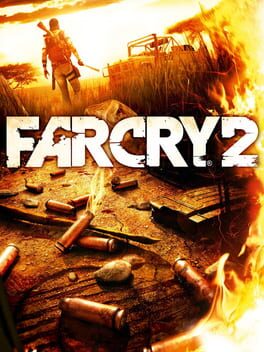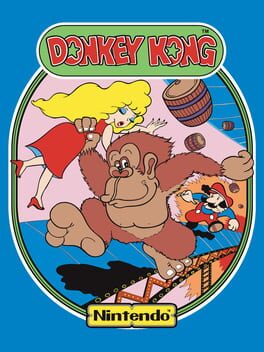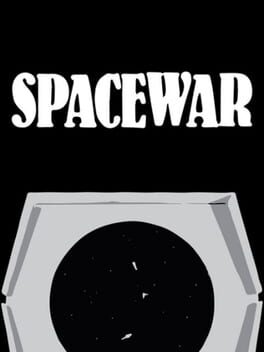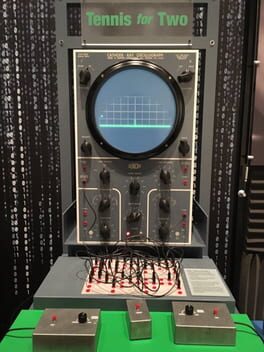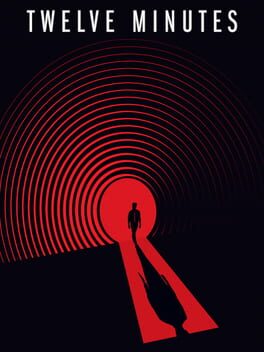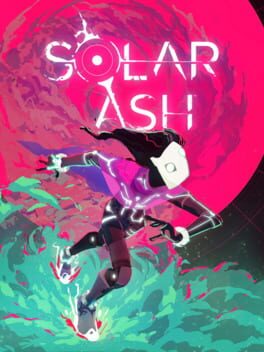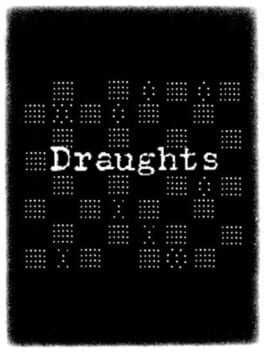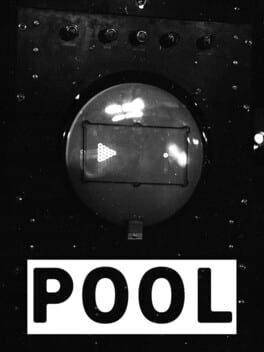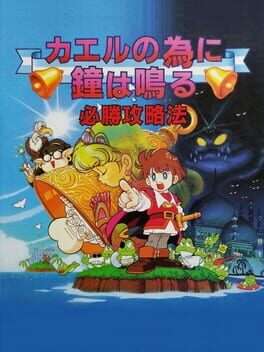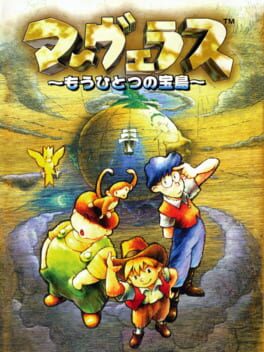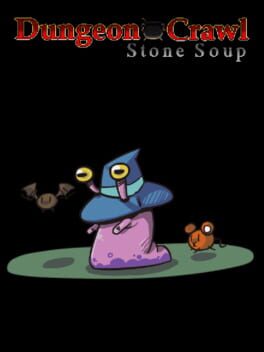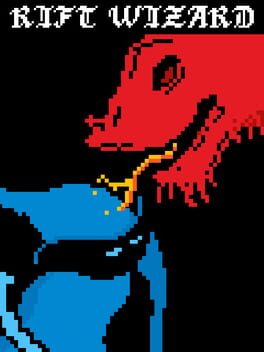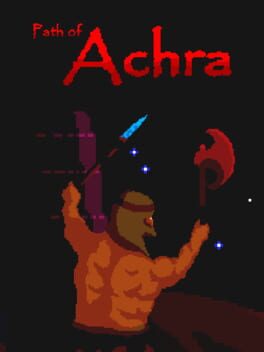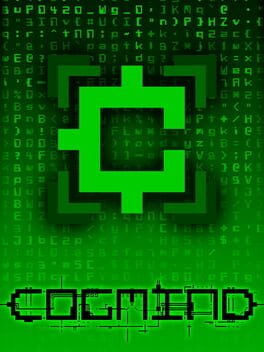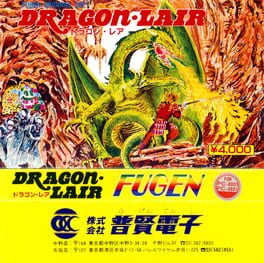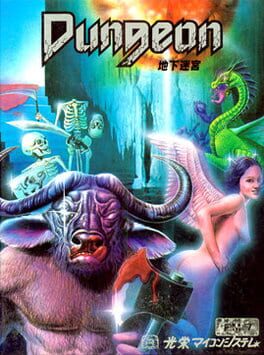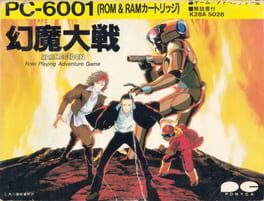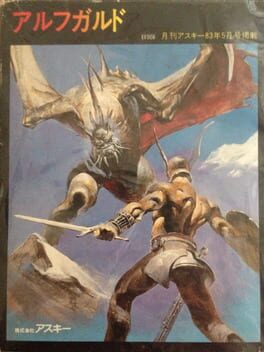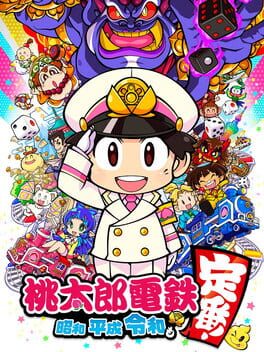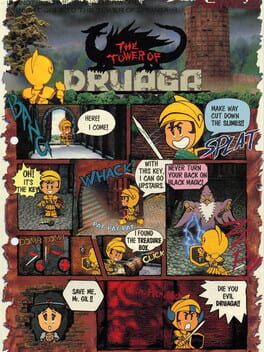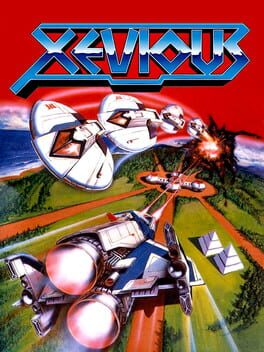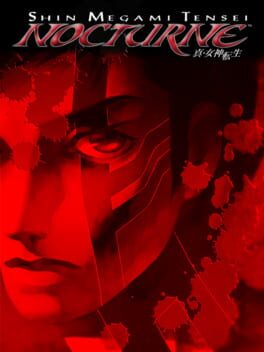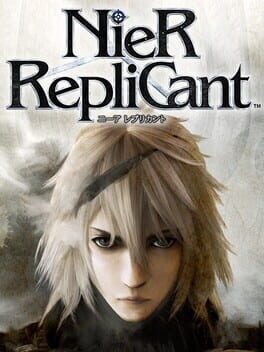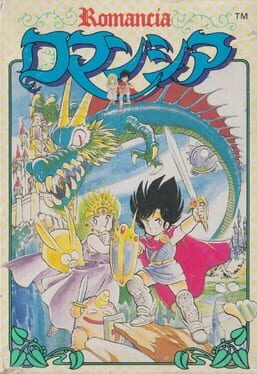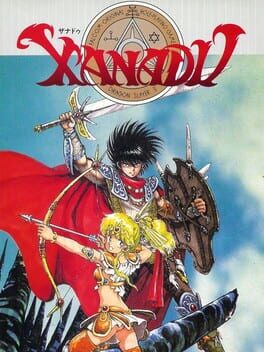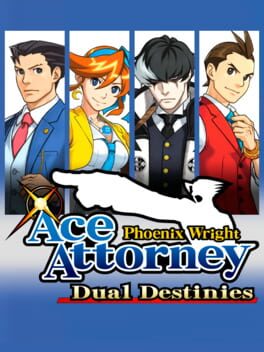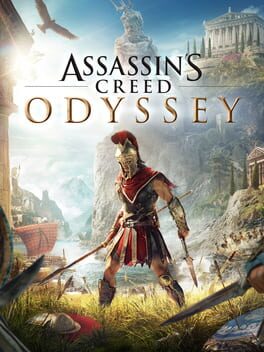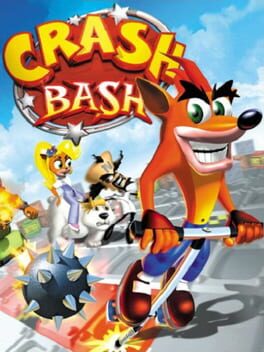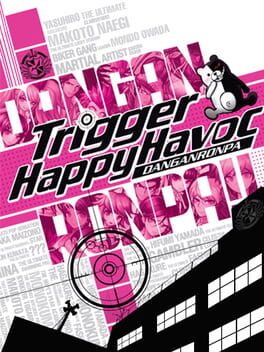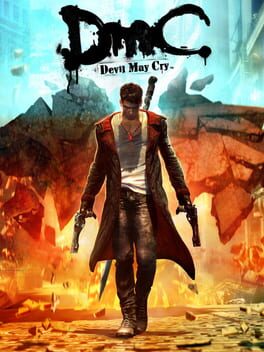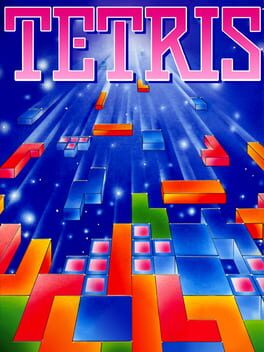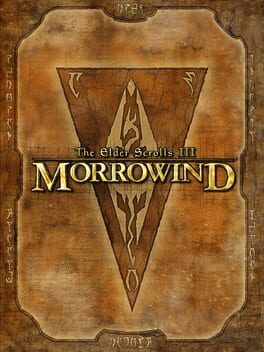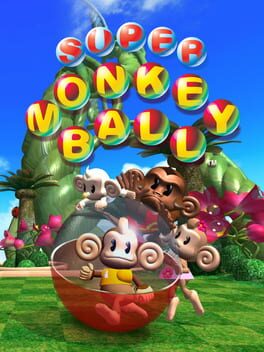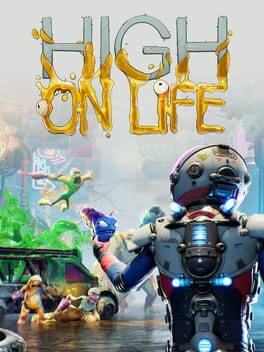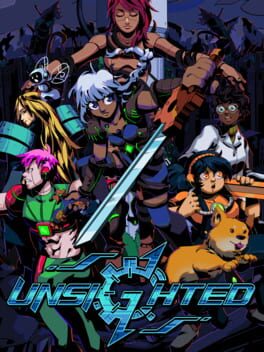133 reviews liked by tiagoaon
Far Cry 2
2008
...if anything, it's not punishing enough? currently struggling to make it much further in this game - wonderful environment and aesthetics, the gold standard for map usage in video games, tightly balanced player-defiant mechanics and intriguing metanarrative elements intertwine into anathema for the modern open world experience, and yet for every stroke of genius and for every emergent design decision there is there exists something equally repellent. learning that malaria is an obfuscated level up mechanic was the breaking point for me and the artifice only piled up from there. a genuine shame - during that brief illusory period where i felt every inconvenience to be true and every threat to be hazardous, the game shone like a diamond
Donkey Kong
1981
Surgiu uma enorme dúvida existencial em minha vida: será que eu joguei mesmo o Donkey Kong original ou só o absorvi por osmose cultural ou joguei um clone da vida? Para saná-la, naveguei por certas baías, peguei a rom "emprestada" e liguei o RetroArch.
Uma coisa dele que eu realmente não lembrava é que a parte de pular em cima dos barris não era nem metade do game. Tem a fase de tirar os pregos (que algum recesso de minha mente reconheceu na hora quando viu) e dos elevadores e a fábrica com esteiras (que tinha esquecido completamente e fiquei com cara de "pera, isso existia?" quando vi). Escrevo isso aqui não para informar outras pessoas, já que esse game foi comentado ad nauseam por todos e nada do que eu disser sobre ele será inédito, mas mais como uma forma de guardar isso na memória dessa vez.
Enfim, super clássico, com poucos competidores no quesito qualidade em sua época e ainda divertido de jogar hoje em dia.
Uma coisa dele que eu realmente não lembrava é que a parte de pular em cima dos barris não era nem metade do game. Tem a fase de tirar os pregos (que algum recesso de minha mente reconheceu na hora quando viu) e dos elevadores e a fábrica com esteiras (que tinha esquecido completamente e fiquei com cara de "pera, isso existia?" quando vi). Escrevo isso aqui não para informar outras pessoas, já que esse game foi comentado ad nauseam por todos e nada do que eu disser sobre ele será inédito, mas mais como uma forma de guardar isso na memória dessa vez.
Enfim, super clássico, com poucos competidores no quesito qualidade em sua época e ainda divertido de jogar hoje em dia.
Balatro
2024
https://i.ibb.co/6vLDK1S/Screenshot-2024-02-26-at-12-44-02.png
not morally egregious per se but rather a depressing culmination of two centuries worth of design trickery and (d)evolving cultural/social tastes and otherwise exists as insipid casinocore autoplaying bullshit that leaves you feeling the same way as you did moments after blasting rope to that fucked up mmm ice cream so tasty thing you found in the middle of a reddit doomscroll. this game should come with a contractual agreement binding its devotees to never speak prejudicially about mobile games or musou or vampire survivors or people whose lives have been ruined by industrialised gambling practices. you seen that casinos have RFID wristbands now that let you re-ante by just waving your hand across the slots? goes great with the simulated day/night lighting and complementary alcoholic energy drinks. endless hours of fun! fuck the review man let's talk the end of the world in the comments below
not morally egregious per se but rather a depressing culmination of two centuries worth of design trickery and (d)evolving cultural/social tastes and otherwise exists as insipid casinocore autoplaying bullshit that leaves you feeling the same way as you did moments after blasting rope to that fucked up mmm ice cream so tasty thing you found in the middle of a reddit doomscroll. this game should come with a contractual agreement binding its devotees to never speak prejudicially about mobile games or musou or vampire survivors or people whose lives have been ruined by industrialised gambling practices. you seen that casinos have RFID wristbands now that let you re-ante by just waving your hand across the slots? goes great with the simulated day/night lighting and complementary alcoholic energy drinks. endless hours of fun! fuck the review man let's talk the end of the world in the comments below
Spacewar!
1962
Um daqueles games que a influenciou tanta coisa (literalmente tudo) e a gente ouve falar tanto que, mesmo sem nunca ter jogado, parece que conhecemos de cabo à rabo devido a alta taxa de saturação da osmose cultural. Claro, esse sentimento é enganoso, e contato direto com as fontes é sempre uma experiência valiosa - algo que como pretenso historiador eu deveria estar cansado de saber. Sempre é possível descobrir coisas inesperadas quando vamos direto à fonte¹. Por exemplo, eu não tinha ideia de que Spacewar! tinha uma física tão detalhada, ou que a estrela no meio do campo possuía um centro de gravidade que te puxava constantemente para a morte. Coisas que eu morreria sem saber se não tivesse tomado vergonha na cara e ido atrás.
¹ Ou, no caso, o mais próximo disso dentro das limitações econômicas e logísticas, que seria essa versão que replica o código original e roda num emulador de PDP1 direto do browser.
¹ Ou, no caso, o mais próximo disso dentro das limitações econômicas e logísticas, que seria essa versão que replica o código original e roda num emulador de PDP1 direto do browser.
Tennis for Two
1958
Seria Tennis for Two o primeiro videogame da história? Em vez de responder essa pergunta, vamos dar um monte de voltas e enrolar um pouco.
A pergunta "X é o primeiro videogame?" tem alguns problemas. O primeiro, um tanto óbvio para quem estuda História, é que qualquer pergunta ou afirmação sobre o "primeiro da história" tem que ser qualificada. É muito improvável que tenhamos registros concretos e objetivos de qualquer "primeiro da história". O que temos, isso sim, são artefatos ou eventos que são os mais antigos que conhecemos. O passado é muito, muito mais amplo do que podemos imaginar e a humanidade só é capaz de preservar e acessar uma ínfima parcela dele. Pode ter certeza que qualquer que seja a sua área de interesse vai ter alguns milhares de trabalhos perdidos, a maioria que nem sabemos que estão perdidos, e alguns bem mais antigos do que aqueles que comumente chamamos de "o primeiro". Portanto, a pergunta "qual o primeiro X da história?" deve ser sempre entendida com uma qualificação implícita: "qual o primeiro X da história que temos registros?"
Mesmo com essa qualificação, se perguntar sobre o primeiro videogame da história ainda esbarra em outro problema, um problema que certamente atormenta muitos filósofos contemporâneos e deve ter levado várias pessoas à loucura: o que diabos é um videogame? Como tenho que preservar a pouca sanidade mental que me resta, não me dou o trabalho de sequer tentar elaborar uma resposta objetiva para essa pergunta. Minha abordagem para definir algo como jogo eletrônico ou não é a mesma da Suprema Corte dos Estados Unidos para definir pornografia: eu reconheço quando vejo. Mas o ponto que eu quero chegar não é se podemos definir o que é videogame ou qual a definição apropriada. Meu ponto é que a resposta para a pergunta "Tennis for Two é o primeiro videogame da história que temos registros?" está condicionada à sua definição de videogame, seja ela objetiva ou não.
Um vídeo bem bacana sobre o assunto que investiga bastante documentação, patentes e registros históricos disponíveis e faz uma discussão interessante é The First Video Game, do canal Ahoy. No meio do vídeo, aos 29m25s, o ensaísta chega a uma definição razoavelmente robusta e objetiva do que é um videogame, composta por cinco pontos que não vou repetir aqui (vá assistir ao vídeo! Vale a pena!). Basta dizer que eu discordo dela quase integralmente e, portanto, a conclusão dele de que a simulação de Damas criada por Christopher Strachey em 1952 é o primeiro videogame da história não é compartilhada por mim. Isso não quer dizer que o vídeo e a discussão são ruins, muito pelo contrário, reitero a recomendação. E, mesmo que eu discorde de várias conclusões e definições, há um outro ponto que o Ahoy elabora que eu concordo absolutamente: a criação dos videogames não foi um evento, foi um fenômeno. Conseguir uma resposta definitiva de qual foi o primeiro jogo eletrônico que temos registro é difícil, mas não precisamos disso para se olhar pros vários desenvolvimentos na computação e os vários experimentos com programas interativos dos 1950 e perceber que eles fazem parte de um processo que daria forma aos videogames e a indústria como conhecemos.
É como se fosse um ciclone: é difícil dizer exatamente quando o que era uma chuvinha virou uma tempestade. Foi quando começaram as trovoadas? Quando o vento ficou muito forte? Quando as nuvens ficaram tão escuras que parecia até que anoiteceu? Independente de sabermos o momento exato em que começou a tempestade, é fato que ela aconteceu, e o vento, chuva, trovões e nuvens fazem parte dela.
Voltamos então à pergunta de origem. Seria Tennis for Two o primeiro jogo da história que temos registros? Depois de experimentar essa simulação feita pelo excelente RETROGAME DECONSTRUCTION ZONE, eu chego à conclusão que... Não! É certamente uma simulação interativa, e certamente é possível competir usando ela. Mas depois de brincar com ela por meia horinha, ainda sinto que falta aquele "fator especial" para eu conseguir apontar e dizer sem ressalvas, "isso é um videogame!" - algo que, por exemplo, não tenho receio de dizer em relação a Spacewar!. Eu reconheço quando vejo.
Isso tira a importância história e cultural de Tennis for Two ou o desassocia da história dos videogames? De forma alguma! Primeiramente, eu sou apenas um alguém na internet. Tennis não se encaixar na minha definição completamente subjetiva do que é um videogame é irrelevante. Além disso, mesmo que alguém ligue para o que eu falo na internet (o que não recomendo), temos que considerar que eu não experimentei o verdadeiro Tennis for Two, apenas uma simulação digital que, apesar de bem detalhada, ainda é uma experiência diferente da que eu teria num hardware mais genuíno (emulação não é uma bala de prata para todos os casos e a materialidade dos games não pode ser ignorada, algo que talvez eu escreva sobre no futuro). Por último, mas não menos importante, mesmo que você compartilhe da opinião de que Tennis não é bem um jogo, não pode negar que ele continua fazendo parte do fenômeno que deu origem aos jogos eletrônicos.
A pergunta "X é o primeiro videogame?" tem alguns problemas. O primeiro, um tanto óbvio para quem estuda História, é que qualquer pergunta ou afirmação sobre o "primeiro da história" tem que ser qualificada. É muito improvável que tenhamos registros concretos e objetivos de qualquer "primeiro da história". O que temos, isso sim, são artefatos ou eventos que são os mais antigos que conhecemos. O passado é muito, muito mais amplo do que podemos imaginar e a humanidade só é capaz de preservar e acessar uma ínfima parcela dele. Pode ter certeza que qualquer que seja a sua área de interesse vai ter alguns milhares de trabalhos perdidos, a maioria que nem sabemos que estão perdidos, e alguns bem mais antigos do que aqueles que comumente chamamos de "o primeiro". Portanto, a pergunta "qual o primeiro X da história?" deve ser sempre entendida com uma qualificação implícita: "qual o primeiro X da história que temos registros?"
Mesmo com essa qualificação, se perguntar sobre o primeiro videogame da história ainda esbarra em outro problema, um problema que certamente atormenta muitos filósofos contemporâneos e deve ter levado várias pessoas à loucura: o que diabos é um videogame? Como tenho que preservar a pouca sanidade mental que me resta, não me dou o trabalho de sequer tentar elaborar uma resposta objetiva para essa pergunta. Minha abordagem para definir algo como jogo eletrônico ou não é a mesma da Suprema Corte dos Estados Unidos para definir pornografia: eu reconheço quando vejo. Mas o ponto que eu quero chegar não é se podemos definir o que é videogame ou qual a definição apropriada. Meu ponto é que a resposta para a pergunta "Tennis for Two é o primeiro videogame da história que temos registros?" está condicionada à sua definição de videogame, seja ela objetiva ou não.
Um vídeo bem bacana sobre o assunto que investiga bastante documentação, patentes e registros históricos disponíveis e faz uma discussão interessante é The First Video Game, do canal Ahoy. No meio do vídeo, aos 29m25s, o ensaísta chega a uma definição razoavelmente robusta e objetiva do que é um videogame, composta por cinco pontos que não vou repetir aqui (vá assistir ao vídeo! Vale a pena!). Basta dizer que eu discordo dela quase integralmente e, portanto, a conclusão dele de que a simulação de Damas criada por Christopher Strachey em 1952 é o primeiro videogame da história não é compartilhada por mim. Isso não quer dizer que o vídeo e a discussão são ruins, muito pelo contrário, reitero a recomendação. E, mesmo que eu discorde de várias conclusões e definições, há um outro ponto que o Ahoy elabora que eu concordo absolutamente: a criação dos videogames não foi um evento, foi um fenômeno. Conseguir uma resposta definitiva de qual foi o primeiro jogo eletrônico que temos registro é difícil, mas não precisamos disso para se olhar pros vários desenvolvimentos na computação e os vários experimentos com programas interativos dos 1950 e perceber que eles fazem parte de um processo que daria forma aos videogames e a indústria como conhecemos.
É como se fosse um ciclone: é difícil dizer exatamente quando o que era uma chuvinha virou uma tempestade. Foi quando começaram as trovoadas? Quando o vento ficou muito forte? Quando as nuvens ficaram tão escuras que parecia até que anoiteceu? Independente de sabermos o momento exato em que começou a tempestade, é fato que ela aconteceu, e o vento, chuva, trovões e nuvens fazem parte dela.
Voltamos então à pergunta de origem. Seria Tennis for Two o primeiro jogo da história que temos registros? Depois de experimentar essa simulação feita pelo excelente RETROGAME DECONSTRUCTION ZONE, eu chego à conclusão que... Não! É certamente uma simulação interativa, e certamente é possível competir usando ela. Mas depois de brincar com ela por meia horinha, ainda sinto que falta aquele "fator especial" para eu conseguir apontar e dizer sem ressalvas, "isso é um videogame!" - algo que, por exemplo, não tenho receio de dizer em relação a Spacewar!. Eu reconheço quando vejo.
Isso tira a importância história e cultural de Tennis for Two ou o desassocia da história dos videogames? De forma alguma! Primeiramente, eu sou apenas um alguém na internet. Tennis não se encaixar na minha definição completamente subjetiva do que é um videogame é irrelevante. Além disso, mesmo que alguém ligue para o que eu falo na internet (o que não recomendo), temos que considerar que eu não experimentei o verdadeiro Tennis for Two, apenas uma simulação digital que, apesar de bem detalhada, ainda é uma experiência diferente da que eu teria num hardware mais genuíno (emulação não é uma bala de prata para todos os casos e a materialidade dos games não pode ser ignorada, algo que talvez eu escreva sobre no futuro). Por último, mas não menos importante, mesmo que você compartilhe da opinião de que Tennis não é bem um jogo, não pode negar que ele continua fazendo parte do fenômeno que deu origem aos jogos eletrônicos.
OXO
1952
Não tenho muito o que comentar sobre esse daqui além de reforçar a grande conquista técnica que foi e linkar o site onde você pode experimentar uma réplica digital do computador EDSAC, que inclui não só o OXO mas também outros softwares para você brincar e se maravilhar com a engenhosidade dos primeiros cientistas da computação.
Twelve Minutes
2021
Twelve Minutes, the first game directed by veteran Luis António, frustratingly and miserably uses itself in a narrative and thematic loop in order to achieve unsatisfactory and totally derisory results - even if, above all, it takes itself seriously.
In addition to a plot with several holes and unbelievable twists, the game has one of the worst gameplays Annapurna has ever offered, at least 10 years behind in game design (including critically failing on trivial matters), and never, I repeat, never exploring any of its own points thematically. The loop is a tool, not the object, which is a serious mistake.
This is, of course, not to mention the fact that it doesn't even touch on themes that are crucial to its story, never, for example, mentioning its sadism, violence and abnormality, just accepting them as elements that don't change what it's trying to tell - again, another serious (and, frankly, amateurish) mistake.
If only it made fun of itself, but not even that. Twelve Minutes wants to be taken seriously, very seriously, through art direction that uses morbid tones and cold sets, cinematic acting scenes and, wow, violence and swearing. All of this as if it had no less screen time with minimal depth than its own 12-minute loop, both in narrative and gameplay - it's empty, through and through, however much the passively charming style and dramatic performances may try to manipulate you into believing that it's not.
You, the protagonist, kill all the relevant characters in the game, in one way or another, at one time or another, and the only, only consequence or mention of these events comes in the form of an apology. An apology from the protagonist himself, made hours and hours after the start of the loop - hours that 80% of the time, and that number is no exaggeration, will be incessant repetition without any use.
In other words, it's a game that doesn't even try to care about femicide, murder, suicide or cancer; themes that, since present at alarming levels, could easily be explored to the full, but are treated only as tools to tell a story that doesn't even work in the most basic sense imaginable.
Spoiler warning: Of course, because completely ignoring any emotional sensitivity or social issue was surely the most desirable way to conduct a text about a man who is hypnotized by his father, kills him and marries his own sister, falling, years later, into a hellish time loop to discover that he has done so.
In short: playing Twelve Minutes sucks, with an outdated point-and-click and poor use of the time loop, and what's worse, it doesn't even make a point of hiding this fact behind a minimally decent script - because, in fact, it's as shallow as a saucer. Luis António completely takes away the point of a game being a game and a story being worth telling - especially as he's part of a publisher like Annapurna, capable of casting even Willem Dafoe and giving his protégés freedom of time and creativity.
In addition to a plot with several holes and unbelievable twists, the game has one of the worst gameplays Annapurna has ever offered, at least 10 years behind in game design (including critically failing on trivial matters), and never, I repeat, never exploring any of its own points thematically. The loop is a tool, not the object, which is a serious mistake.
This is, of course, not to mention the fact that it doesn't even touch on themes that are crucial to its story, never, for example, mentioning its sadism, violence and abnormality, just accepting them as elements that don't change what it's trying to tell - again, another serious (and, frankly, amateurish) mistake.
If only it made fun of itself, but not even that. Twelve Minutes wants to be taken seriously, very seriously, through art direction that uses morbid tones and cold sets, cinematic acting scenes and, wow, violence and swearing. All of this as if it had no less screen time with minimal depth than its own 12-minute loop, both in narrative and gameplay - it's empty, through and through, however much the passively charming style and dramatic performances may try to manipulate you into believing that it's not.
You, the protagonist, kill all the relevant characters in the game, in one way or another, at one time or another, and the only, only consequence or mention of these events comes in the form of an apology. An apology from the protagonist himself, made hours and hours after the start of the loop - hours that 80% of the time, and that number is no exaggeration, will be incessant repetition without any use.
In other words, it's a game that doesn't even try to care about femicide, murder, suicide or cancer; themes that, since present at alarming levels, could easily be explored to the full, but are treated only as tools to tell a story that doesn't even work in the most basic sense imaginable.
Spoiler warning: Of course, because completely ignoring any emotional sensitivity or social issue was surely the most desirable way to conduct a text about a man who is hypnotized by his father, kills him and marries his own sister, falling, years later, into a hellish time loop to discover that he has done so.
In short: playing Twelve Minutes sucks, with an outdated point-and-click and poor use of the time loop, and what's worse, it doesn't even make a point of hiding this fact behind a minimally decent script - because, in fact, it's as shallow as a saucer. Luis António completely takes away the point of a game being a game and a story being worth telling - especially as he's part of a publisher like Annapurna, capable of casting even Willem Dafoe and giving his protégés freedom of time and creativity.
Solar Ash
2021
the movement mechanics are impeccable, that's for sure, sliding, jumping and flying around is super fun, relaxing and fluid, and this is also due to the immaculate level design that is also present, wonderful
speaking of the gameplay, the bosses are extremely inspired by shadow of the colossus, one of my favorite games, and it even manages to transform its main mechanics into something specific to the game that blends in with the rest while being fun.
the game is also visually excellent, with unique and vivid boss and character designs
but the praise stops there
the story is mediocre at best, being ridiculously poorly told with slow and pointless dialogues, not to mention being very obvious, bland and conveying the message of mourning in a terrible way. this also includes the stories of the npcs, but they manage to be much better than the main one (even if they connect very poorly with the latter)
the main character is an insufferable, dumb pain in the ass, who only becomes a decent person in the good ending, which is the only possible ending for the game, since the bad one is extremely counter-intuitive and poorly done
the combat is simple and ok, but it's too easy and feels more like a hindrance to the game than something to add to the experience
and the soundtrack is decent at best, unremarkable and completely agreeable
it's a game that you'll have a lot of fun playing and you'll be fine relaxing, but it has obvious flaws.
speaking of the gameplay, the bosses are extremely inspired by shadow of the colossus, one of my favorite games, and it even manages to transform its main mechanics into something specific to the game that blends in with the rest while being fun.
the game is also visually excellent, with unique and vivid boss and character designs
but the praise stops there
the story is mediocre at best, being ridiculously poorly told with slow and pointless dialogues, not to mention being very obvious, bland and conveying the message of mourning in a terrible way. this also includes the stories of the npcs, but they manage to be much better than the main one (even if they connect very poorly with the latter)
the main character is an insufferable, dumb pain in the ass, who only becomes a decent person in the good ending, which is the only possible ending for the game, since the bad one is extremely counter-intuitive and poorly done
the combat is simple and ok, but it's too easy and feels more like a hindrance to the game than something to add to the experience
and the soundtrack is decent at best, unremarkable and completely agreeable
it's a game that you'll have a lot of fun playing and you'll be fine relaxing, but it has obvious flaws.
Citizen Sleeper
2022
one of my new fav games
i created a deep and unique connection with each character
i was delighted with every sentence and every rich description of the landscapes and actions
i felt emotions that ranged from euphoria to anxiety in close moments
one of the most immersive, beautiful and deep games I've ever played
looking forward to the sequel
i created a deep and unique connection with each character
i was delighted with every sentence and every rich description of the landscapes and actions
i felt emotions that ranged from euphoria to anxiety in close moments
one of the most immersive, beautiful and deep games I've ever played
looking forward to the sequel
Pentiment
2022
ℑ’𝔪 𝔣𝔯𝔬𝔪 𝔞 𝔱𝔬𝔴𝔫 𝔠𝔞𝔩𝔩𝔢𝔡 ℭ𝔬𝔞𝔱𝔟𝔯𝔦𝔡𝔤𝔢. ℑ𝔱'𝔰 𝔦𝔫 𝔖𝔠𝔬𝔱𝔩𝔞𝔫𝔡. ℭ𝔬𝔞𝔱𝔟𝔯𝔦𝔡𝔤𝔢 𝔦𝔰 𝔬𝔫 𝔱𝔥𝔢 𝔟𝔬𝔯𝔡𝔢𝔯 𝔬𝔣 𝔊𝔩𝔞𝔰𝔤𝔬𝔴 𝔞𝔫𝔡 𝔦𝔫 2001 𝔦𝔱 𝔥𝔞𝔡 𝔱𝔥𝔢 𝔡𝔢𝔫𝔰𝔢𝔰𝔱 𝔭𝔬𝔭𝔲𝔩𝔞𝔱𝔦𝔬𝔫 𝔬𝔣 ℑ𝔯𝔦𝔰𝔥 ℭ𝔞𝔱𝔥𝔬𝔩𝔦𝔠𝔰 𝔭𝔢𝔯 𝔠𝔞𝔭𝔦𝔱𝔞 𝔞𝔫𝔶𝔴𝔥𝔢𝔯𝔢 𝔦𝔫 𝔱𝔥𝔢 𝔴𝔬𝔯𝔩𝔡 𝔬𝔲𝔱𝔰𝔦𝔡𝔢 𝔬𝔣 ℑ𝔯𝔢𝔩𝔞𝔫𝔡.
ℑ 𝔡𝔦𝔡𝔫’𝔱 𝔨𝔫𝔬𝔴 𝔱𝔥𝔞𝔱 𝔰𝔞𝔶𝔦𝔫𝔤 𝔭𝔯𝔞𝔶𝔢𝔯𝔰 𝔢𝔦𝔤𝔥𝔱 𝔱𝔦𝔪𝔢𝔰 𝔞 𝔡𝔞𝔶 𝔴𝔞𝔰𝔫’𝔱 𝔫𝔬𝔯𝔪𝔞𝔩 𝔲𝔫𝔱𝔦𝔩 ℑ 𝔴𝔞𝔰 14. 𝔚𝔥𝔢𝔫 ℑ 𝔥𝔢𝔞𝔯 𝔭𝔢𝔬𝔭𝔩𝔢 𝔰𝔞𝔶 𝔱𝔥𝔢𝔪 𝔬𝔫 𝔱𝔢𝔩𝔢𝔳𝔦𝔰𝔦𝔬𝔫 𝔬𝔯 𝔦𝔫 𝔣𝔦𝔩𝔪𝔰, ℑ 𝔰𝔱𝔦𝔩𝔩 𝔭𝔯𝔞𝔶 𝔞𝔩𝔬𝔫𝔤 𝔴𝔦𝔱𝔥 𝔱𝔥𝔢𝔪 𝔦𝔫 𝔪𝔶 𝔥𝔢𝔞𝔡. ℑ 𝔡𝔦𝔡𝔫'𝔱 𝔩𝔦𝔨𝔢 𝔤𝔬𝔦𝔫𝔤 𝔱𝔬 𝔪𝔞𝔰𝔰 𝔴𝔥𝔢𝔫 ℑ 𝔴𝔞𝔰 𝔶𝔬𝔲𝔫𝔤𝔢𝔯, 𝔟𝔲𝔱 ℑ 𝔱𝔥𝔦𝔫𝔨 ℑ’𝔡 𝔩𝔦𝔨𝔢 𝔦𝔱 𝔫𝔬𝔴. 𝔐𝔶 𝔪𝔲𝔪 𝔰𝔞𝔶𝔰 𝔱𝔥𝔞𝔱 𝔞 𝔩𝔬𝔱 𝔱𝔬𝔬. 𝔖𝔞𝔶𝔦𝔫𝔤 “𝔭𝔢𝔞𝔠𝔢 𝔟𝔢 𝔴𝔦𝔱𝔥 𝔶𝔬𝔲” 𝔞𝔫𝔡 𝔰𝔥𝔞𝔨𝔦𝔫𝔤 𝔥𝔞𝔫𝔡𝔰 𝔴𝔦𝔱𝔥 𝔭𝔢𝔬𝔭𝔩𝔢 𝔴𝔞𝔰 𝔪𝔶 𝔣𝔞𝔳𝔬𝔲𝔯𝔦𝔱𝔢 𝔭𝔞𝔯𝔱 𝔬𝔣 𝔤𝔬𝔦𝔫𝔤 𝔱𝔬 𝔪𝔞𝔰𝔰.
𝕿𝖍𝖊𝖗𝖊 𝖆𝖗𝖊 𝖙𝖍𝖎𝖗𝖙𝖊𝖊𝖓 𝕮𝖆𝖙𝖍𝖔𝖑𝖎𝖈 𝖘𝖈𝖍𝖔𝖔𝖑𝖘 𝖆𝖓𝖉 𝖋𝖔𝖚𝖗 𝖓𝖔𝖓-𝖉𝖊𝖓𝖔𝖒𝖎𝖓𝖆𝖙𝖎𝖔𝖓𝖆𝖑 𝖘𝖈𝖍𝖔𝖔𝖑𝖘 𝖎𝖓 𝕮𝖔𝖆𝖙𝖇𝖗𝖎𝖉𝖌𝖊. 𝕴 𝖉𝖎𝖉𝖓'𝖙 𝖗𝖊𝖆𝖑𝖑𝖞 𝖐𝖓𝖔𝖜 𝖙𝖍𝖆𝖙 𝖔𝖙𝖍𝖊𝖗 𝖗𝖊𝖑𝖎𝖌𝖎𝖔𝖓𝖘 𝖊𝖝𝖎𝖘𝖙𝖊𝖉 𝖜𝖍𝖊𝖓 𝕴 𝖜𝖆𝖘 𝖞𝖔𝖚𝖓𝖌𝖊𝖗. 𝕴𝖓 𝕽𝖊𝖑𝖎𝖌𝖎𝖔𝖚𝖘 𝕰𝖉𝖚𝖈𝖆𝖙𝖎𝖔𝖓 𝖈𝖑𝖆𝖘𝖘, 𝖜𝖊 𝖏𝖚𝖘𝖙 𝖑𝖊𝖆𝖗𝖓𝖊𝖉 𝖆𝖇𝖔𝖚𝖙 𝖙𝖍𝖊 𝖙𝖍𝖎𝖓𝖌𝖘 𝖙𝖍𝖆𝖙 𝕮𝖆𝖙𝖍𝖔𝖑𝖎𝖈𝖘 𝖇𝖊𝖑𝖎𝖊𝖛𝖊.
𝕿𝖍𝖊 𝖋𝖎𝖗𝖘𝖙 𝖙𝖎𝖒𝖊 𝕴 𝖜𝖊𝖓𝖙 𝖙𝖔 𝖈𝖔𝖓𝖋𝖊𝖘𝖘𝖎𝖔𝖓 𝕴 𝖙𝖔𝖑𝖉 𝖙𝖍𝖊 𝖕𝖗𝖎𝖊𝖘𝖙 𝕴 𝖙𝖔𝖔𝖐 𝖘𝖔𝖒𝖊 𝖇𝖎𝖘𝖈𝖚𝖎𝖙𝖘 𝖔𝖚𝖙 𝖔𝖋 𝖙𝖍𝖊 𝖈𝖚𝖕𝖇𝖔𝖆𝖗𝖉 𝖜𝖎𝖙𝖍𝖔𝖚𝖙 𝖆𝖘𝖐𝖎𝖓𝖌. 𝕳𝖊 𝖙𝖔𝖑𝖉 𝖒𝖊 𝖙𝖔 𝖘𝖎𝖙 𝖆𝖓𝖉 𝖙𝖍𝖎𝖓𝖐 𝖆𝖇𝖔𝖚𝖙 𝖜𝖍𝖊𝖙𝖍𝖊𝖗 𝕴’𝖉 𝖉𝖔𝖓𝖊 𝖆𝖓𝖞𝖙𝖍𝖎𝖓𝖌 𝖜𝖔𝖗𝖘𝖊. 𝕴 𝖒𝖆𝖉𝖊 𝖚𝖕 𝖆 𝖘𝖙𝖔𝖗𝖞 𝖆𝖇𝖔𝖚𝖙 𝖒𝖊 𝖇𝖊𝖎𝖓𝖌 𝖗𝖊𝖆𝖑𝖑𝖞 𝖇𝖆𝖉 𝖆𝖓𝖉 𝖌𝖔𝖙 𝖆𝖓 𝕬𝖈𝖙 𝕺𝖋 𝕮𝖔𝖓𝖙𝖗𝖎𝖙𝖎𝖔𝖓 𝖆𝖓𝖉 𝖙𝖊𝖓 𝕳𝖆𝖎𝖑 𝕸𝖆𝖗𝖞𝖘. 𝕴 𝖉𝖎𝖉 𝖆𝖑𝖑 𝖙𝖊𝖓 𝖔𝖋 𝖙𝖍𝖊𝖒 𝖇𝖚𝖙 𝖎𝖙’𝖘 𝖔𝖐𝖆𝖞 𝖇𝖊𝖈𝖆𝖚𝖘𝖊 𝖒𝖞 𝖌𝖗𝖆𝖓𝖉𝖕𝖆 𝖌𝖆𝖛𝖊 𝖒𝖊 £𝟑𝟎 𝖋𝖔𝖗 𝖉𝖔𝖎𝖓𝖌 𝖈𝖔𝖓𝖋𝖊𝖘𝖘𝖎𝖔𝖓 𝖆𝖓𝖉 𝖙𝖍𝖆𝖙 𝖜𝖆𝖘 𝖊𝖓𝖔𝖚𝖌𝖍 𝖙𝖔 𝖇𝖚𝖞 𝕲𝖔𝖑𝖉𝖊𝖓𝕰𝖞𝖊 𝖋𝖔𝖗 𝖙𝖍𝖊 𝕹𝖎𝖓𝖙𝖊𝖓𝖉𝖔 𝟔𝟒.
𝕬𝖙 𝖔𝖚𝖗 𝖘𝖈𝖍𝖔𝖔𝖑 𝖉𝖎𝖘𝖈𝖔𝖘, 𝖙𝖍𝖊 𝖈𝖍𝖆𝖕𝖑𝖆𝖎𝖓 𝖜𝖔𝖚𝖑𝖉 𝖜𝖍𝖆𝖈𝖐 𝖆 𝖘𝖙𝖎𝖈𝖐 𝖇𝖊𝖙𝖜𝖊𝖊𝖓 𝖘𝖙𝖚𝖉𝖊𝖓𝖙𝖘 𝖎𝖋 𝖙𝖍𝖊𝖞 𝖉𝖎𝖉𝖓’𝖙 𝖒𝖆𝖎𝖓𝖙𝖆𝖎𝖓 𝖆 𝖘𝖆𝖋𝖊 𝖉𝖎𝖘𝖙𝖆𝖓𝖈𝖊 𝖋𝖗𝖔𝖒 𝖙𝖍𝖊𝖎𝖗 𝖕𝖆𝖗𝖙𝖓𝖊𝖗 𝖆𝖓𝖉 𝖘𝖕𝖊𝖓𝖙 𝖒𝖆𝖓𝖞 𝖉𝖎𝖔𝖈𝖊𝖘𝖊𝖘-𝖆𝖕𝖕𝖗𝖔𝖛𝖊𝖉 𝖉𝖆𝖓𝖈𝖊 𝖓𝖚𝖒𝖇𝖊𝖗𝖘 𝖕𝖔𝖎𝖓𝖙𝖎𝖓𝖌 𝖋𝖑𝖆𝖘𝖍𝖑𝖎𝖌𝖍𝖙𝖘 𝖎𝖓𝖙𝖔 𝖉𝖆𝖗𝖐 𝖈𝖔𝖗𝖓𝖊𝖗𝖘. 𝕳𝖊 𝖜𝖆𝖘 𝖋𝖚𝖗𝖎𝖔𝖚𝖘 𝖜𝖍𝖊𝖓 𝖍𝖊 𝖈𝖆𝖚𝖌𝖍𝖙 𝖞𝖔𝖚 𝖐𝖎𝖘𝖘𝖎𝖓𝖌. 𝕳𝖊 𝖈𝖆𝖚𝖌𝖍𝖙 𝖒𝖔𝖘𝖙 𝖕𝖊𝖔𝖕𝖑𝖊 𝖉𝖔𝖎𝖓𝖌 𝖘𝖔𝖒𝖊 𝖐𝖎𝖓𝖉 𝖔𝖋 𝖐𝖎𝖘𝖘𝖎𝖓𝖌 𝖆𝖙 𝖘𝖔𝖒𝖊 𝖕𝖔𝖎𝖓𝖙 𝖎𝖓 𝖙𝖍𝖊𝖎𝖗 𝖙𝖎𝖒𝖊 𝖆𝖙 𝖔𝖚𝖗 𝖘𝖈𝖍𝖔𝖔𝖑. 𝕬 𝖋𝖊𝖜 𝖞𝖊𝖆𝖗𝖘 𝖑𝖆𝖙𝖊𝖗, 𝖙𝖍𝖊 𝖕𝖗𝖎𝖊𝖘𝖙 𝖜𝖊𝖓𝖙 𝖔𝖓 𝖙𝖔 𝖍𝖆𝖛𝖊 𝖆𝖓 𝖆𝖋𝖋𝖆𝖎𝖗 𝖜𝖎𝖙𝖍 𝖔𝖚𝖗 𝖍𝖊𝖆𝖉 𝖙𝖊𝖆𝖈𝖍𝖊𝖗 𝖆𝖓𝖉 𝖗𝖊𝖓𝖔𝖚𝖓𝖈𝖊𝖉 𝖍𝖎𝖘 𝖛𝖔𝖜𝖘.
𝓘’𝓿𝓮 𝓷𝓮𝓿𝓮𝓻 𝓱𝓪𝓭 𝓪𝓷𝔂 𝓴𝓲𝓷𝓭 𝓸𝓯 𝓼𝓮𝔁 𝓮𝓭𝓾𝓬𝓪𝓽𝓲𝓸𝓷 𝓯𝓻𝓸𝓶 𝓪𝓷𝔂𝓸𝓷𝓮, 𝓽𝓱𝓸𝓾𝓰𝓱 𝓲𝓽 𝓲𝓼 𝓶𝓪𝓷𝓭𝓪𝓽𝓸𝓻𝔂 𝓯𝓸𝓻 𝓼𝓬𝓱𝓸𝓸𝓵𝓼 𝓸𝓯 𝓪𝓵𝓵 𝓭𝓮𝓷𝓸𝓶𝓲𝓷𝓪𝓽𝓲𝓸𝓷𝓼 𝓲𝓷 𝓢𝓬𝓸𝓽𝓵𝓪𝓷𝓭 𝓽𝓸 𝓽𝓮𝓪𝓬𝓱 𝓰𝓲𝓻𝓵𝓼 𝓪𝓫𝓸𝓾𝓽 𝓹𝓾𝓫𝓮𝓻𝓽𝔂 𝓪𝓷𝓭 𝓶𝓮𝓷𝓼𝓽𝓻𝓾𝓪𝓽𝓲𝓸𝓷. 𝓞𝓷 𝓽𝓱𝓮 𝓭𝓪𝔂 𝓽𝓱𝓮 𝓰𝓲𝓻𝓵𝓼 𝓲𝓷 𝓸𝓾𝓻 𝓼𝓬𝓱𝓸𝓸𝓵 𝓱𝓪𝓭 𝓽𝓸 𝓵𝓮𝓪𝓻𝓷 𝓪𝓫𝓸𝓾𝓽 𝓪𝓵𝓵 𝓸𝓯 𝓽𝓱𝓲𝓼, 𝓽𝓱𝓮 𝓫𝓸𝔂𝓼 𝓰𝓸𝓽 𝓽𝓸 𝓰𝓸 𝓽𝓸 𝓪 𝓵𝓸𝓬𝓪𝓵 𝔀𝓪𝓽𝓮𝓻 𝓹𝓪𝓻𝓴. 𝓜𝔂 𝓯𝓻𝓲𝓮𝓷𝓭𝓼 𝓪𝓷𝓭 𝓘 𝓶𝓪𝓷𝓪𝓰𝓮𝓭 𝓽𝓸 𝓫𝓮𝓪𝓽 𝓖𝓪𝓾𝓷𝓽𝓵𝓮𝓽 𝓪𝓽 𝓽𝓱𝓮 𝓪𝓻𝓬𝓪𝓭𝓮 𝓽𝓱𝓮𝓻𝓮 𝓽𝓱𝓪𝓽 𝓭𝓪𝔂 𝓪𝓷𝓭 𝔀𝓱𝓮𝓷 𝔀𝓮 𝓽𝓸𝓵𝓭 𝓸𝓾𝓻 𝓸𝓷𝓵𝔂 𝓯𝓮𝓶𝓪𝓵𝓮 𝓯𝓻𝓲𝓮𝓷𝓭 𝓪𝓫𝓸𝓾𝓽 𝓲𝓽 𝓵𝓪𝓽𝓮𝓻 𝓸𝓷, 𝓼𝓱𝓮 𝓼𝓽𝓪𝓻𝓽𝓮𝓭 𝓬𝓻𝔂𝓲𝓷𝓰.
𝓐 𝓽𝓮𝓪𝓬𝓱𝓮𝓻 𝓸𝓷𝓬𝓮 𝓽𝓸𝓵𝓭 𝓾𝓼 𝓽𝓱𝓪𝓽 𝓱𝓪𝓿𝓲𝓷𝓰 𝓼𝓮𝔁 𝓸𝓾𝓽𝓼𝓲𝓭𝓮 𝓸𝓯 𝓶𝓪𝓻𝓻𝓲𝓪𝓰𝓮 𝔀𝓸𝓾𝓵𝓭, 𝓻𝓮𝓰𝓪𝓻𝓭𝓵𝓮𝓼𝓼 𝓸𝓯 𝓬𝓸𝓷𝓽𝓻𝓪𝓬𝓮𝓹𝓽𝓲𝓸𝓷, 𝓪𝓾𝓽𝓸𝓶𝓪𝓽𝓲𝓬𝓪𝓵𝓵𝔂 𝓵𝓮𝓪𝓭 𝓽𝓸 𝓹𝓻𝓮𝓰𝓷𝓪𝓷𝓬𝔂 𝓪𝓷𝓭 𝓽𝓱𝓮 𝓬𝓸𝓷𝓽𝓻𝓪𝓬𝓽𝓲𝓸𝓷 𝓸𝓯 𝓐𝓘𝓓𝓼 𝓪𝓷𝓭 𝓗𝓘𝓥. 𝓗𝓮 𝓽𝓱𝓸𝓾𝓰𝓱𝓽 𝓐𝓘𝓓𝓼 𝓪𝓷𝓭 𝓗𝓘𝓥 𝔀𝓮𝓻𝓮 𝓽𝔀𝓸 𝓭𝓲𝓯𝓯𝓮𝓻𝓮𝓷𝓽 𝓽𝓱𝓲𝓷𝓰𝓼. 𝓐𝓘𝓓𝓼 𝔀𝓪𝓼 𝓖𝓸𝓭’𝓼 𝓹𝓾𝓷𝓲𝓼𝓱𝓶𝓮𝓷𝓽 𝓯𝓸𝓻 𝓹𝓮𝓸𝓹𝓵𝓮 𝔀𝓱𝓸 𝓭𝓲𝓭𝓷'𝓽 𝓻𝓮𝓼𝓹𝓮𝓬𝓽 𝓽𝓱𝓮 𝓱𝓸𝓵𝔂 𝓼𝓪𝓬𝓻𝓪𝓶𝓮𝓷𝓽 𝓸𝓯 𝓶𝓪𝓽𝓻𝓲𝓶𝓸𝓷𝔂. 𝓣𝓱𝓮 𝓯𝓲𝓻𝓼𝓽 𝓰𝓲𝓻𝓵 𝓘 𝓮𝓿𝓮𝓻 𝓼𝓵𝓮𝓹𝓽 𝔀𝓲𝓽𝓱 𝔀𝓪𝓼 𝓯𝓻𝓸𝓶 𝓶𝔂 𝓬𝓵𝓪𝓼𝓼 𝓪𝓷𝓭 𝓘 𝓽𝓱𝓲𝓷𝓴 𝓽𝓱𝓪𝓽 𝔀𝓪𝓼 𝓸𝓷 𝓫𝓸𝓽𝓱 𝓸𝓯 𝓸𝓾𝓻 𝓶𝓲𝓷𝓭𝓼 𝔀𝓱𝓮𝓷 𝔀𝓮 𝓱𝓪𝓭 𝓼𝓮𝔁.
𝓐𝓯𝓽𝓮𝓻 𝓘 𝓻𝓮𝓪𝓭 𝓣𝓱𝓮 𝓖𝓸𝓭 𝓓𝓮𝓵𝓾𝓼𝓲𝓸𝓷 𝓪𝓷𝓭 𝓭𝓮𝓬𝓲𝓭𝓮𝓭 𝓘 𝓱𝓪𝓭 𝓯𝓲𝓰𝓾𝓻𝓮𝓭 𝓸𝓾𝓽 𝓱𝓾𝓶𝓪𝓷 𝓮𝔁𝓲𝓼𝓽𝓮𝓷𝓬𝓮, 𝓘 𝓼𝓽𝓸𝓹𝓹𝓮𝓭 𝓼𝓲𝓰𝓷𝓲𝓷𝓰 𝓪𝓯𝓽𝓮𝓻 𝓹𝓻𝓪𝔂𝓮𝓻𝓼 𝓪𝓷𝓭 𝓶𝓪𝓭𝓮 𝓽𝓱𝓮 𝓲𝓷𝓭𝓲𝓼𝓹𝓸𝓼𝓮𝓭 𝓬𝓻𝓸𝓼𝓼 𝔀𝓱𝓮𝓷 𝓲𝓽 𝔀𝓪𝓼 𝓽𝓲𝓶𝓮 𝓽𝓸 𝓻𝓮𝓬𝓮𝓲𝓿𝓮 𝓬𝓸𝓶𝓶𝓾𝓷𝓲𝓸𝓷. 𝓘 𝓪𝓵𝔀𝓪𝔂𝓼 𝔀𝓪𝓼𝓱𝓮𝓭 𝓽𝓱𝓮 𝓪𝓼𝓱𝓮𝓼 𝓸𝓯𝓯 𝓶𝔂 𝓯𝓸𝓻𝓮𝓱𝓮𝓪𝓭 𝓫𝓮𝓬𝓪𝓾𝓼𝓮 𝓲𝓽 𝓲𝓷𝓽𝓮𝓻𝓯𝓮𝓻𝓮𝓭 𝔀𝓲𝓽𝓱 𝓶𝔂 𝓼𝓲𝓭𝓮-𝓯𝓻𝓲𝓷𝓰𝓮. 𝓘𝓷 𝓶𝔂 𝓯𝓲𝓷𝓪𝓵 𝔂𝓮𝓪𝓻 𝓸𝓯 𝓼𝓬𝓱𝓸𝓸𝓵 𝓘 𝔀𝓪𝓼 𝓪𝓭𝓿𝓲𝓼𝓮𝓭 𝓽𝓸 𝓵𝓮𝓪𝓿𝓮 𝓪𝓷𝓭 𝓰𝓮𝓽 𝓪 𝓳𝓸𝓫 𝓫𝓮𝓬𝓪𝓾𝓼𝓮 𝓘 𝔀𝓪𝓼𝓷'𝓽 𝓮𝓷𝓰𝓪𝓰𝓲𝓷𝓰 𝔀𝓲𝓽𝓱 𝓽𝓱𝓮 𝓼𝓬𝓱𝓸𝓸𝓵'𝓼 𝓮𝓽𝓱𝓸𝓼 𝓪𝓷𝓭 𝓿𝓪𝓵𝓾𝓮𝓼.
𝘞𝘩𝘪𝘭𝘦 𝘢𝘭𝘭 𝘮𝘺 𝘧𝘳𝘪𝘦𝘯𝘥𝘴 𝘧𝘪𝘯𝘪𝘴𝘩𝘦𝘥 𝘵𝘩𝘦𝘪𝘳 𝘴𝘵𝘶𝘥𝘪𝘦𝘴, 𝘐 𝘭𝘦𝘢𝘳𝘯𝘦𝘥 𝘵𝘰 𝘥𝘳𝘪𝘷𝘦 𝘢𝘯𝘥 𝘨𝘰𝘵 𝘢 𝘫𝘰𝘣 𝘰𝘶𝘵𝘴𝘪𝘥𝘦 𝘰𝘧 𝘊𝘰𝘢𝘵𝘣𝘳𝘪𝘥𝘨𝘦. 𝘛𝘩𝘢𝘵 𝘸𝘢𝘴 𝘢 𝘥𝘦𝘭𝘪𝘣𝘦𝘳𝘢𝘵𝘦 𝘥𝘦𝘤𝘪𝘴𝘪𝘰𝘯. 𝘐 𝘭𝘪𝘬𝘦𝘥 𝘵𝘰 𝘵𝘢𝘬𝘦 𝘱𝘦𝘰𝘱𝘭𝘦 𝘰𝘯 𝘵𝘩𝘦 𝘔𝘤𝘋𝘰𝘯𝘢𝘭𝘥𝘴 𝘛𝘰𝘶𝘳, 𝘸𝘩𝘪𝘤𝘩 𝘪𝘴 𝘸𝘩𝘦𝘯 𝘺𝘰𝘶 𝘥𝘳𝘪𝘷𝘦 𝘧𝘳𝘰𝘮 𝘵𝘩𝘦 𝘔𝘤𝘋𝘰𝘯𝘢𝘭𝘥𝘴 𝘪𝘯 𝘵𝘩𝘦 𝘦𝘢𝘴𝘵 𝘰𝘧 𝘊𝘰𝘢𝘵𝘣𝘳𝘪𝘥𝘨𝘦 𝘵𝘰 𝘵𝘩𝘦 𝘔𝘤𝘋𝘰𝘯𝘢𝘭𝘥𝘴 𝘪𝘯 𝘵𝘩𝘦 𝘸𝘦𝘴𝘵 𝘰𝘧 𝘊𝘰𝘢𝘵𝘣𝘳𝘪𝘥𝘨𝘦 𝘢𝘯𝘥 𝘰𝘯 𝘵𝘩𝘦 𝘸𝘢𝘺 𝘺𝘰𝘶 𝘦𝘯𝘥 𝘶𝘱 𝘴𝘦𝘦𝘪𝘯𝘨 𝘮𝘰𝘴𝘵 𝘰𝘧 𝘵𝘩𝘦 𝘵𝘰𝘸𝘯. 𝘛𝘩𝘦𝘳𝘦 𝘸𝘦𝘳𝘦 𝘵𝘸𝘰 𝘔𝘤𝘋𝘰𝘯𝘢𝘭𝘥𝘴 𝘪𝘯 𝘊𝘰𝘢𝘵𝘣𝘳𝘪𝘥𝘨𝘦 𝘢𝘯𝘥 𝘰𝘯𝘭𝘺 𝘰𝘯𝘦 𝘴𝘪𝘵-𝘪𝘯 𝘳𝘦𝘴𝘵𝘢𝘶𝘳𝘢𝘯𝘵.
𝚆𝚑𝚎𝚗 𝙸 𝚠𝚊𝚜 𝟸𝟷, 𝙸 𝚐𝚘𝚝 𝚊 𝚓𝚘𝚋 𝚊𝚜 𝚊 𝚛𝚎𝚜𝚎𝚊𝚛𝚌𝚑𝚎𝚛 𝚏𝚘𝚛 𝙶𝚕𝚊𝚜𝚐𝚘𝚠 𝚄𝚗𝚒𝚟𝚎𝚛𝚜𝚒𝚝𝚢 𝚊𝚗𝚍 𝚠𝚒𝚝𝚑𝚒𝚗 𝚊 𝚠𝚎𝚎𝚔 𝚍𝚎𝚌𝚒𝚍𝚎𝚍 𝚝𝚘 𝚖𝚘𝚟𝚎 𝚊 𝚠𝚑𝚘𝚕𝚎 𝚝𝚎𝚗 𝚖𝚒𝚕𝚎𝚜 𝚊𝚠𝚊𝚢 𝚏𝚛𝚘𝚖 𝙲𝚘𝚊𝚝𝚋𝚛𝚒𝚍𝚐𝚎 𝚠𝚒𝚝𝚑 𝚗𝚘 𝚒𝚗𝚝𝚎𝚗𝚝𝚒𝚘𝚗𝚜 𝚘𝚏 𝚎𝚟𝚎𝚛 𝚛𝚎𝚝𝚞𝚛𝚗𝚒𝚗𝚐. 𝙾𝚗 𝚝𝚑𝚎 𝚍𝚊𝚢 𝙸 𝚕𝚎𝚏𝚝, 𝚖𝚢 𝚖𝚞𝚖 𝚐𝚊𝚟𝚎 𝚖𝚎 𝚝𝚑𝚎 𝚛𝚘𝚜𝚊𝚛𝚢 𝚋𝚎𝚊𝚍𝚜 𝚝𝚑𝚊𝚝 𝙿𝚘𝚙𝚎 𝙹𝚘𝚑𝚗 𝙿𝚊𝚞𝚕 𝙸𝙸 𝚋𝚕𝚎𝚜𝚜𝚎𝚍 𝚏𝚘𝚛 𝚑𝚎𝚛 𝚊𝚗𝚍 𝚜𝚊𝚒𝚍 𝚜𝚑𝚎 𝚠𝚘𝚞𝚕𝚍𝚗’𝚝 𝚋𝚎 𝚊𝚋𝚕𝚎 𝚝𝚘 𝚜𝚎𝚎 𝚖𝚎 𝚘𝚏𝚏 𝚋𝚎𝚌𝚊𝚞𝚜𝚎 𝚜𝚑𝚎 𝚑𝚊𝚍 𝚊 𝚍𝚘𝚌𝚝𝚘𝚛’𝚜 𝚊𝚙𝚙𝚘𝚒𝚗𝚝𝚖𝚎𝚗𝚝. 𝙰 𝚏𝚎𝚠 𝚢𝚎𝚊𝚛𝚜 𝚕𝚊𝚝𝚎𝚛 𝙸 𝚏𝚘𝚞𝚗𝚍 𝚘𝚞𝚝 𝚝𝚑𝚎𝚛𝚎 𝚠𝚊𝚜 𝚗𝚘 𝚍𝚘𝚌𝚝𝚘𝚛’𝚜 𝚊𝚙𝚙𝚘𝚒𝚗𝚝𝚖𝚎𝚗𝚝. 𝚂𝚑𝚎 𝚓𝚞𝚜𝚝 𝚠𝚎𝚗𝚝 𝚊 𝚛𝚎𝚊𝚕𝚕𝚢 𝚕𝚘𝚗𝚐 𝚠𝚊𝚕𝚔 𝚛𝚘𝚞𝚗𝚍 𝚝𝚑𝚎 𝚕𝚘𝚌𝚑.
ℑ 𝔡𝔦𝔡𝔫’𝔱 𝔨𝔫𝔬𝔴 𝔱𝔥𝔞𝔱 𝔰𝔞𝔶𝔦𝔫𝔤 𝔭𝔯𝔞𝔶𝔢𝔯𝔰 𝔢𝔦𝔤𝔥𝔱 𝔱𝔦𝔪𝔢𝔰 𝔞 𝔡𝔞𝔶 𝔴𝔞𝔰𝔫’𝔱 𝔫𝔬𝔯𝔪𝔞𝔩 𝔲𝔫𝔱𝔦𝔩 ℑ 𝔴𝔞𝔰 14. 𝔚𝔥𝔢𝔫 ℑ 𝔥𝔢𝔞𝔯 𝔭𝔢𝔬𝔭𝔩𝔢 𝔰𝔞𝔶 𝔱𝔥𝔢𝔪 𝔬𝔫 𝔱𝔢𝔩𝔢𝔳𝔦𝔰𝔦𝔬𝔫 𝔬𝔯 𝔦𝔫 𝔣𝔦𝔩𝔪𝔰, ℑ 𝔰𝔱𝔦𝔩𝔩 𝔭𝔯𝔞𝔶 𝔞𝔩𝔬𝔫𝔤 𝔴𝔦𝔱𝔥 𝔱𝔥𝔢𝔪 𝔦𝔫 𝔪𝔶 𝔥𝔢𝔞𝔡. ℑ 𝔡𝔦𝔡𝔫'𝔱 𝔩𝔦𝔨𝔢 𝔤𝔬𝔦𝔫𝔤 𝔱𝔬 𝔪𝔞𝔰𝔰 𝔴𝔥𝔢𝔫 ℑ 𝔴𝔞𝔰 𝔶𝔬𝔲𝔫𝔤𝔢𝔯, 𝔟𝔲𝔱 ℑ 𝔱𝔥𝔦𝔫𝔨 ℑ’𝔡 𝔩𝔦𝔨𝔢 𝔦𝔱 𝔫𝔬𝔴. 𝔐𝔶 𝔪𝔲𝔪 𝔰𝔞𝔶𝔰 𝔱𝔥𝔞𝔱 𝔞 𝔩𝔬𝔱 𝔱𝔬𝔬. 𝔖𝔞𝔶𝔦𝔫𝔤 “𝔭𝔢𝔞𝔠𝔢 𝔟𝔢 𝔴𝔦𝔱𝔥 𝔶𝔬𝔲” 𝔞𝔫𝔡 𝔰𝔥𝔞𝔨𝔦𝔫𝔤 𝔥𝔞𝔫𝔡𝔰 𝔴𝔦𝔱𝔥 𝔭𝔢𝔬𝔭𝔩𝔢 𝔴𝔞𝔰 𝔪𝔶 𝔣𝔞𝔳𝔬𝔲𝔯𝔦𝔱𝔢 𝔭𝔞𝔯𝔱 𝔬𝔣 𝔤𝔬𝔦𝔫𝔤 𝔱𝔬 𝔪𝔞𝔰𝔰.
𝕿𝖍𝖊𝖗𝖊 𝖆𝖗𝖊 𝖙𝖍𝖎𝖗𝖙𝖊𝖊𝖓 𝕮𝖆𝖙𝖍𝖔𝖑𝖎𝖈 𝖘𝖈𝖍𝖔𝖔𝖑𝖘 𝖆𝖓𝖉 𝖋𝖔𝖚𝖗 𝖓𝖔𝖓-𝖉𝖊𝖓𝖔𝖒𝖎𝖓𝖆𝖙𝖎𝖔𝖓𝖆𝖑 𝖘𝖈𝖍𝖔𝖔𝖑𝖘 𝖎𝖓 𝕮𝖔𝖆𝖙𝖇𝖗𝖎𝖉𝖌𝖊. 𝕴 𝖉𝖎𝖉𝖓'𝖙 𝖗𝖊𝖆𝖑𝖑𝖞 𝖐𝖓𝖔𝖜 𝖙𝖍𝖆𝖙 𝖔𝖙𝖍𝖊𝖗 𝖗𝖊𝖑𝖎𝖌𝖎𝖔𝖓𝖘 𝖊𝖝𝖎𝖘𝖙𝖊𝖉 𝖜𝖍𝖊𝖓 𝕴 𝖜𝖆𝖘 𝖞𝖔𝖚𝖓𝖌𝖊𝖗. 𝕴𝖓 𝕽𝖊𝖑𝖎𝖌𝖎𝖔𝖚𝖘 𝕰𝖉𝖚𝖈𝖆𝖙𝖎𝖔𝖓 𝖈𝖑𝖆𝖘𝖘, 𝖜𝖊 𝖏𝖚𝖘𝖙 𝖑𝖊𝖆𝖗𝖓𝖊𝖉 𝖆𝖇𝖔𝖚𝖙 𝖙𝖍𝖊 𝖙𝖍𝖎𝖓𝖌𝖘 𝖙𝖍𝖆𝖙 𝕮𝖆𝖙𝖍𝖔𝖑𝖎𝖈𝖘 𝖇𝖊𝖑𝖎𝖊𝖛𝖊.
𝕿𝖍𝖊 𝖋𝖎𝖗𝖘𝖙 𝖙𝖎𝖒𝖊 𝕴 𝖜𝖊𝖓𝖙 𝖙𝖔 𝖈𝖔𝖓𝖋𝖊𝖘𝖘𝖎𝖔𝖓 𝕴 𝖙𝖔𝖑𝖉 𝖙𝖍𝖊 𝖕𝖗𝖎𝖊𝖘𝖙 𝕴 𝖙𝖔𝖔𝖐 𝖘𝖔𝖒𝖊 𝖇𝖎𝖘𝖈𝖚𝖎𝖙𝖘 𝖔𝖚𝖙 𝖔𝖋 𝖙𝖍𝖊 𝖈𝖚𝖕𝖇𝖔𝖆𝖗𝖉 𝖜𝖎𝖙𝖍𝖔𝖚𝖙 𝖆𝖘𝖐𝖎𝖓𝖌. 𝕳𝖊 𝖙𝖔𝖑𝖉 𝖒𝖊 𝖙𝖔 𝖘𝖎𝖙 𝖆𝖓𝖉 𝖙𝖍𝖎𝖓𝖐 𝖆𝖇𝖔𝖚𝖙 𝖜𝖍𝖊𝖙𝖍𝖊𝖗 𝕴’𝖉 𝖉𝖔𝖓𝖊 𝖆𝖓𝖞𝖙𝖍𝖎𝖓𝖌 𝖜𝖔𝖗𝖘𝖊. 𝕴 𝖒𝖆𝖉𝖊 𝖚𝖕 𝖆 𝖘𝖙𝖔𝖗𝖞 𝖆𝖇𝖔𝖚𝖙 𝖒𝖊 𝖇𝖊𝖎𝖓𝖌 𝖗𝖊𝖆𝖑𝖑𝖞 𝖇𝖆𝖉 𝖆𝖓𝖉 𝖌𝖔𝖙 𝖆𝖓 𝕬𝖈𝖙 𝕺𝖋 𝕮𝖔𝖓𝖙𝖗𝖎𝖙𝖎𝖔𝖓 𝖆𝖓𝖉 𝖙𝖊𝖓 𝕳𝖆𝖎𝖑 𝕸𝖆𝖗𝖞𝖘. 𝕴 𝖉𝖎𝖉 𝖆𝖑𝖑 𝖙𝖊𝖓 𝖔𝖋 𝖙𝖍𝖊𝖒 𝖇𝖚𝖙 𝖎𝖙’𝖘 𝖔𝖐𝖆𝖞 𝖇𝖊𝖈𝖆𝖚𝖘𝖊 𝖒𝖞 𝖌𝖗𝖆𝖓𝖉𝖕𝖆 𝖌𝖆𝖛𝖊 𝖒𝖊 £𝟑𝟎 𝖋𝖔𝖗 𝖉𝖔𝖎𝖓𝖌 𝖈𝖔𝖓𝖋𝖊𝖘𝖘𝖎𝖔𝖓 𝖆𝖓𝖉 𝖙𝖍𝖆𝖙 𝖜𝖆𝖘 𝖊𝖓𝖔𝖚𝖌𝖍 𝖙𝖔 𝖇𝖚𝖞 𝕲𝖔𝖑𝖉𝖊𝖓𝕰𝖞𝖊 𝖋𝖔𝖗 𝖙𝖍𝖊 𝕹𝖎𝖓𝖙𝖊𝖓𝖉𝖔 𝟔𝟒.
𝕬𝖙 𝖔𝖚𝖗 𝖘𝖈𝖍𝖔𝖔𝖑 𝖉𝖎𝖘𝖈𝖔𝖘, 𝖙𝖍𝖊 𝖈𝖍𝖆𝖕𝖑𝖆𝖎𝖓 𝖜𝖔𝖚𝖑𝖉 𝖜𝖍𝖆𝖈𝖐 𝖆 𝖘𝖙𝖎𝖈𝖐 𝖇𝖊𝖙𝖜𝖊𝖊𝖓 𝖘𝖙𝖚𝖉𝖊𝖓𝖙𝖘 𝖎𝖋 𝖙𝖍𝖊𝖞 𝖉𝖎𝖉𝖓’𝖙 𝖒𝖆𝖎𝖓𝖙𝖆𝖎𝖓 𝖆 𝖘𝖆𝖋𝖊 𝖉𝖎𝖘𝖙𝖆𝖓𝖈𝖊 𝖋𝖗𝖔𝖒 𝖙𝖍𝖊𝖎𝖗 𝖕𝖆𝖗𝖙𝖓𝖊𝖗 𝖆𝖓𝖉 𝖘𝖕𝖊𝖓𝖙 𝖒𝖆𝖓𝖞 𝖉𝖎𝖔𝖈𝖊𝖘𝖊𝖘-𝖆𝖕𝖕𝖗𝖔𝖛𝖊𝖉 𝖉𝖆𝖓𝖈𝖊 𝖓𝖚𝖒𝖇𝖊𝖗𝖘 𝖕𝖔𝖎𝖓𝖙𝖎𝖓𝖌 𝖋𝖑𝖆𝖘𝖍𝖑𝖎𝖌𝖍𝖙𝖘 𝖎𝖓𝖙𝖔 𝖉𝖆𝖗𝖐 𝖈𝖔𝖗𝖓𝖊𝖗𝖘. 𝕳𝖊 𝖜𝖆𝖘 𝖋𝖚𝖗𝖎𝖔𝖚𝖘 𝖜𝖍𝖊𝖓 𝖍𝖊 𝖈𝖆𝖚𝖌𝖍𝖙 𝖞𝖔𝖚 𝖐𝖎𝖘𝖘𝖎𝖓𝖌. 𝕳𝖊 𝖈𝖆𝖚𝖌𝖍𝖙 𝖒𝖔𝖘𝖙 𝖕𝖊𝖔𝖕𝖑𝖊 𝖉𝖔𝖎𝖓𝖌 𝖘𝖔𝖒𝖊 𝖐𝖎𝖓𝖉 𝖔𝖋 𝖐𝖎𝖘𝖘𝖎𝖓𝖌 𝖆𝖙 𝖘𝖔𝖒𝖊 𝖕𝖔𝖎𝖓𝖙 𝖎𝖓 𝖙𝖍𝖊𝖎𝖗 𝖙𝖎𝖒𝖊 𝖆𝖙 𝖔𝖚𝖗 𝖘𝖈𝖍𝖔𝖔𝖑. 𝕬 𝖋𝖊𝖜 𝖞𝖊𝖆𝖗𝖘 𝖑𝖆𝖙𝖊𝖗, 𝖙𝖍𝖊 𝖕𝖗𝖎𝖊𝖘𝖙 𝖜𝖊𝖓𝖙 𝖔𝖓 𝖙𝖔 𝖍𝖆𝖛𝖊 𝖆𝖓 𝖆𝖋𝖋𝖆𝖎𝖗 𝖜𝖎𝖙𝖍 𝖔𝖚𝖗 𝖍𝖊𝖆𝖉 𝖙𝖊𝖆𝖈𝖍𝖊𝖗 𝖆𝖓𝖉 𝖗𝖊𝖓𝖔𝖚𝖓𝖈𝖊𝖉 𝖍𝖎𝖘 𝖛𝖔𝖜𝖘.
𝓘’𝓿𝓮 𝓷𝓮𝓿𝓮𝓻 𝓱𝓪𝓭 𝓪𝓷𝔂 𝓴𝓲𝓷𝓭 𝓸𝓯 𝓼𝓮𝔁 𝓮𝓭𝓾𝓬𝓪𝓽𝓲𝓸𝓷 𝓯𝓻𝓸𝓶 𝓪𝓷𝔂𝓸𝓷𝓮, 𝓽𝓱𝓸𝓾𝓰𝓱 𝓲𝓽 𝓲𝓼 𝓶𝓪𝓷𝓭𝓪𝓽𝓸𝓻𝔂 𝓯𝓸𝓻 𝓼𝓬𝓱𝓸𝓸𝓵𝓼 𝓸𝓯 𝓪𝓵𝓵 𝓭𝓮𝓷𝓸𝓶𝓲𝓷𝓪𝓽𝓲𝓸𝓷𝓼 𝓲𝓷 𝓢𝓬𝓸𝓽𝓵𝓪𝓷𝓭 𝓽𝓸 𝓽𝓮𝓪𝓬𝓱 𝓰𝓲𝓻𝓵𝓼 𝓪𝓫𝓸𝓾𝓽 𝓹𝓾𝓫𝓮𝓻𝓽𝔂 𝓪𝓷𝓭 𝓶𝓮𝓷𝓼𝓽𝓻𝓾𝓪𝓽𝓲𝓸𝓷. 𝓞𝓷 𝓽𝓱𝓮 𝓭𝓪𝔂 𝓽𝓱𝓮 𝓰𝓲𝓻𝓵𝓼 𝓲𝓷 𝓸𝓾𝓻 𝓼𝓬𝓱𝓸𝓸𝓵 𝓱𝓪𝓭 𝓽𝓸 𝓵𝓮𝓪𝓻𝓷 𝓪𝓫𝓸𝓾𝓽 𝓪𝓵𝓵 𝓸𝓯 𝓽𝓱𝓲𝓼, 𝓽𝓱𝓮 𝓫𝓸𝔂𝓼 𝓰𝓸𝓽 𝓽𝓸 𝓰𝓸 𝓽𝓸 𝓪 𝓵𝓸𝓬𝓪𝓵 𝔀𝓪𝓽𝓮𝓻 𝓹𝓪𝓻𝓴. 𝓜𝔂 𝓯𝓻𝓲𝓮𝓷𝓭𝓼 𝓪𝓷𝓭 𝓘 𝓶𝓪𝓷𝓪𝓰𝓮𝓭 𝓽𝓸 𝓫𝓮𝓪𝓽 𝓖𝓪𝓾𝓷𝓽𝓵𝓮𝓽 𝓪𝓽 𝓽𝓱𝓮 𝓪𝓻𝓬𝓪𝓭𝓮 𝓽𝓱𝓮𝓻𝓮 𝓽𝓱𝓪𝓽 𝓭𝓪𝔂 𝓪𝓷𝓭 𝔀𝓱𝓮𝓷 𝔀𝓮 𝓽𝓸𝓵𝓭 𝓸𝓾𝓻 𝓸𝓷𝓵𝔂 𝓯𝓮𝓶𝓪𝓵𝓮 𝓯𝓻𝓲𝓮𝓷𝓭 𝓪𝓫𝓸𝓾𝓽 𝓲𝓽 𝓵𝓪𝓽𝓮𝓻 𝓸𝓷, 𝓼𝓱𝓮 𝓼𝓽𝓪𝓻𝓽𝓮𝓭 𝓬𝓻𝔂𝓲𝓷𝓰.
𝓐 𝓽𝓮𝓪𝓬𝓱𝓮𝓻 𝓸𝓷𝓬𝓮 𝓽𝓸𝓵𝓭 𝓾𝓼 𝓽𝓱𝓪𝓽 𝓱𝓪𝓿𝓲𝓷𝓰 𝓼𝓮𝔁 𝓸𝓾𝓽𝓼𝓲𝓭𝓮 𝓸𝓯 𝓶𝓪𝓻𝓻𝓲𝓪𝓰𝓮 𝔀𝓸𝓾𝓵𝓭, 𝓻𝓮𝓰𝓪𝓻𝓭𝓵𝓮𝓼𝓼 𝓸𝓯 𝓬𝓸𝓷𝓽𝓻𝓪𝓬𝓮𝓹𝓽𝓲𝓸𝓷, 𝓪𝓾𝓽𝓸𝓶𝓪𝓽𝓲𝓬𝓪𝓵𝓵𝔂 𝓵𝓮𝓪𝓭 𝓽𝓸 𝓹𝓻𝓮𝓰𝓷𝓪𝓷𝓬𝔂 𝓪𝓷𝓭 𝓽𝓱𝓮 𝓬𝓸𝓷𝓽𝓻𝓪𝓬𝓽𝓲𝓸𝓷 𝓸𝓯 𝓐𝓘𝓓𝓼 𝓪𝓷𝓭 𝓗𝓘𝓥. 𝓗𝓮 𝓽𝓱𝓸𝓾𝓰𝓱𝓽 𝓐𝓘𝓓𝓼 𝓪𝓷𝓭 𝓗𝓘𝓥 𝔀𝓮𝓻𝓮 𝓽𝔀𝓸 𝓭𝓲𝓯𝓯𝓮𝓻𝓮𝓷𝓽 𝓽𝓱𝓲𝓷𝓰𝓼. 𝓐𝓘𝓓𝓼 𝔀𝓪𝓼 𝓖𝓸𝓭’𝓼 𝓹𝓾𝓷𝓲𝓼𝓱𝓶𝓮𝓷𝓽 𝓯𝓸𝓻 𝓹𝓮𝓸𝓹𝓵𝓮 𝔀𝓱𝓸 𝓭𝓲𝓭𝓷'𝓽 𝓻𝓮𝓼𝓹𝓮𝓬𝓽 𝓽𝓱𝓮 𝓱𝓸𝓵𝔂 𝓼𝓪𝓬𝓻𝓪𝓶𝓮𝓷𝓽 𝓸𝓯 𝓶𝓪𝓽𝓻𝓲𝓶𝓸𝓷𝔂. 𝓣𝓱𝓮 𝓯𝓲𝓻𝓼𝓽 𝓰𝓲𝓻𝓵 𝓘 𝓮𝓿𝓮𝓻 𝓼𝓵𝓮𝓹𝓽 𝔀𝓲𝓽𝓱 𝔀𝓪𝓼 𝓯𝓻𝓸𝓶 𝓶𝔂 𝓬𝓵𝓪𝓼𝓼 𝓪𝓷𝓭 𝓘 𝓽𝓱𝓲𝓷𝓴 𝓽𝓱𝓪𝓽 𝔀𝓪𝓼 𝓸𝓷 𝓫𝓸𝓽𝓱 𝓸𝓯 𝓸𝓾𝓻 𝓶𝓲𝓷𝓭𝓼 𝔀𝓱𝓮𝓷 𝔀𝓮 𝓱𝓪𝓭 𝓼𝓮𝔁.
𝓐𝓯𝓽𝓮𝓻 𝓘 𝓻𝓮𝓪𝓭 𝓣𝓱𝓮 𝓖𝓸𝓭 𝓓𝓮𝓵𝓾𝓼𝓲𝓸𝓷 𝓪𝓷𝓭 𝓭𝓮𝓬𝓲𝓭𝓮𝓭 𝓘 𝓱𝓪𝓭 𝓯𝓲𝓰𝓾𝓻𝓮𝓭 𝓸𝓾𝓽 𝓱𝓾𝓶𝓪𝓷 𝓮𝔁𝓲𝓼𝓽𝓮𝓷𝓬𝓮, 𝓘 𝓼𝓽𝓸𝓹𝓹𝓮𝓭 𝓼𝓲𝓰𝓷𝓲𝓷𝓰 𝓪𝓯𝓽𝓮𝓻 𝓹𝓻𝓪𝔂𝓮𝓻𝓼 𝓪𝓷𝓭 𝓶𝓪𝓭𝓮 𝓽𝓱𝓮 𝓲𝓷𝓭𝓲𝓼𝓹𝓸𝓼𝓮𝓭 𝓬𝓻𝓸𝓼𝓼 𝔀𝓱𝓮𝓷 𝓲𝓽 𝔀𝓪𝓼 𝓽𝓲𝓶𝓮 𝓽𝓸 𝓻𝓮𝓬𝓮𝓲𝓿𝓮 𝓬𝓸𝓶𝓶𝓾𝓷𝓲𝓸𝓷. 𝓘 𝓪𝓵𝔀𝓪𝔂𝓼 𝔀𝓪𝓼𝓱𝓮𝓭 𝓽𝓱𝓮 𝓪𝓼𝓱𝓮𝓼 𝓸𝓯𝓯 𝓶𝔂 𝓯𝓸𝓻𝓮𝓱𝓮𝓪𝓭 𝓫𝓮𝓬𝓪𝓾𝓼𝓮 𝓲𝓽 𝓲𝓷𝓽𝓮𝓻𝓯𝓮𝓻𝓮𝓭 𝔀𝓲𝓽𝓱 𝓶𝔂 𝓼𝓲𝓭𝓮-𝓯𝓻𝓲𝓷𝓰𝓮. 𝓘𝓷 𝓶𝔂 𝓯𝓲𝓷𝓪𝓵 𝔂𝓮𝓪𝓻 𝓸𝓯 𝓼𝓬𝓱𝓸𝓸𝓵 𝓘 𝔀𝓪𝓼 𝓪𝓭𝓿𝓲𝓼𝓮𝓭 𝓽𝓸 𝓵𝓮𝓪𝓿𝓮 𝓪𝓷𝓭 𝓰𝓮𝓽 𝓪 𝓳𝓸𝓫 𝓫𝓮𝓬𝓪𝓾𝓼𝓮 𝓘 𝔀𝓪𝓼𝓷'𝓽 𝓮𝓷𝓰𝓪𝓰𝓲𝓷𝓰 𝔀𝓲𝓽𝓱 𝓽𝓱𝓮 𝓼𝓬𝓱𝓸𝓸𝓵'𝓼 𝓮𝓽𝓱𝓸𝓼 𝓪𝓷𝓭 𝓿𝓪𝓵𝓾𝓮𝓼.
𝘞𝘩𝘪𝘭𝘦 𝘢𝘭𝘭 𝘮𝘺 𝘧𝘳𝘪𝘦𝘯𝘥𝘴 𝘧𝘪𝘯𝘪𝘴𝘩𝘦𝘥 𝘵𝘩𝘦𝘪𝘳 𝘴𝘵𝘶𝘥𝘪𝘦𝘴, 𝘐 𝘭𝘦𝘢𝘳𝘯𝘦𝘥 𝘵𝘰 𝘥𝘳𝘪𝘷𝘦 𝘢𝘯𝘥 𝘨𝘰𝘵 𝘢 𝘫𝘰𝘣 𝘰𝘶𝘵𝘴𝘪𝘥𝘦 𝘰𝘧 𝘊𝘰𝘢𝘵𝘣𝘳𝘪𝘥𝘨𝘦. 𝘛𝘩𝘢𝘵 𝘸𝘢𝘴 𝘢 𝘥𝘦𝘭𝘪𝘣𝘦𝘳𝘢𝘵𝘦 𝘥𝘦𝘤𝘪𝘴𝘪𝘰𝘯. 𝘐 𝘭𝘪𝘬𝘦𝘥 𝘵𝘰 𝘵𝘢𝘬𝘦 𝘱𝘦𝘰𝘱𝘭𝘦 𝘰𝘯 𝘵𝘩𝘦 𝘔𝘤𝘋𝘰𝘯𝘢𝘭𝘥𝘴 𝘛𝘰𝘶𝘳, 𝘸𝘩𝘪𝘤𝘩 𝘪𝘴 𝘸𝘩𝘦𝘯 𝘺𝘰𝘶 𝘥𝘳𝘪𝘷𝘦 𝘧𝘳𝘰𝘮 𝘵𝘩𝘦 𝘔𝘤𝘋𝘰𝘯𝘢𝘭𝘥𝘴 𝘪𝘯 𝘵𝘩𝘦 𝘦𝘢𝘴𝘵 𝘰𝘧 𝘊𝘰𝘢𝘵𝘣𝘳𝘪𝘥𝘨𝘦 𝘵𝘰 𝘵𝘩𝘦 𝘔𝘤𝘋𝘰𝘯𝘢𝘭𝘥𝘴 𝘪𝘯 𝘵𝘩𝘦 𝘸𝘦𝘴𝘵 𝘰𝘧 𝘊𝘰𝘢𝘵𝘣𝘳𝘪𝘥𝘨𝘦 𝘢𝘯𝘥 𝘰𝘯 𝘵𝘩𝘦 𝘸𝘢𝘺 𝘺𝘰𝘶 𝘦𝘯𝘥 𝘶𝘱 𝘴𝘦𝘦𝘪𝘯𝘨 𝘮𝘰𝘴𝘵 𝘰𝘧 𝘵𝘩𝘦 𝘵𝘰𝘸𝘯. 𝘛𝘩𝘦𝘳𝘦 𝘸𝘦𝘳𝘦 𝘵𝘸𝘰 𝘔𝘤𝘋𝘰𝘯𝘢𝘭𝘥𝘴 𝘪𝘯 𝘊𝘰𝘢𝘵𝘣𝘳𝘪𝘥𝘨𝘦 𝘢𝘯𝘥 𝘰𝘯𝘭𝘺 𝘰𝘯𝘦 𝘴𝘪𝘵-𝘪𝘯 𝘳𝘦𝘴𝘵𝘢𝘶𝘳𝘢𝘯𝘵.
𝚆𝚑𝚎𝚗 𝙸 𝚠𝚊𝚜 𝟸𝟷, 𝙸 𝚐𝚘𝚝 𝚊 𝚓𝚘𝚋 𝚊𝚜 𝚊 𝚛𝚎𝚜𝚎𝚊𝚛𝚌𝚑𝚎𝚛 𝚏𝚘𝚛 𝙶𝚕𝚊𝚜𝚐𝚘𝚠 𝚄𝚗𝚒𝚟𝚎𝚛𝚜𝚒𝚝𝚢 𝚊𝚗𝚍 𝚠𝚒𝚝𝚑𝚒𝚗 𝚊 𝚠𝚎𝚎𝚔 𝚍𝚎𝚌𝚒𝚍𝚎𝚍 𝚝𝚘 𝚖𝚘𝚟𝚎 𝚊 𝚠𝚑𝚘𝚕𝚎 𝚝𝚎𝚗 𝚖𝚒𝚕𝚎𝚜 𝚊𝚠𝚊𝚢 𝚏𝚛𝚘𝚖 𝙲𝚘𝚊𝚝𝚋𝚛𝚒𝚍𝚐𝚎 𝚠𝚒𝚝𝚑 𝚗𝚘 𝚒𝚗𝚝𝚎𝚗𝚝𝚒𝚘𝚗𝚜 𝚘𝚏 𝚎𝚟𝚎𝚛 𝚛𝚎𝚝𝚞𝚛𝚗𝚒𝚗𝚐. 𝙾𝚗 𝚝𝚑𝚎 𝚍𝚊𝚢 𝙸 𝚕𝚎𝚏𝚝, 𝚖𝚢 𝚖𝚞𝚖 𝚐𝚊𝚟𝚎 𝚖𝚎 𝚝𝚑𝚎 𝚛𝚘𝚜𝚊𝚛𝚢 𝚋𝚎𝚊𝚍𝚜 𝚝𝚑𝚊𝚝 𝙿𝚘𝚙𝚎 𝙹𝚘𝚑𝚗 𝙿𝚊𝚞𝚕 𝙸𝙸 𝚋𝚕𝚎𝚜𝚜𝚎𝚍 𝚏𝚘𝚛 𝚑𝚎𝚛 𝚊𝚗𝚍 𝚜𝚊𝚒𝚍 𝚜𝚑𝚎 𝚠𝚘𝚞𝚕𝚍𝚗’𝚝 𝚋𝚎 𝚊𝚋𝚕𝚎 𝚝𝚘 𝚜𝚎𝚎 𝚖𝚎 𝚘𝚏𝚏 𝚋𝚎𝚌𝚊𝚞𝚜𝚎 𝚜𝚑𝚎 𝚑𝚊𝚍 𝚊 𝚍𝚘𝚌𝚝𝚘𝚛’𝚜 𝚊𝚙𝚙𝚘𝚒𝚗𝚝𝚖𝚎𝚗𝚝. 𝙰 𝚏𝚎𝚠 𝚢𝚎𝚊𝚛𝚜 𝚕𝚊𝚝𝚎𝚛 𝙸 𝚏𝚘𝚞𝚗𝚍 𝚘𝚞𝚝 𝚝𝚑𝚎𝚛𝚎 𝚠𝚊𝚜 𝚗𝚘 𝚍𝚘𝚌𝚝𝚘𝚛’𝚜 𝚊𝚙𝚙𝚘𝚒𝚗𝚝𝚖𝚎𝚗𝚝. 𝚂𝚑𝚎 𝚓𝚞𝚜𝚝 𝚠𝚎𝚗𝚝 𝚊 𝚛𝚎𝚊𝚕𝚕𝚢 𝚕𝚘𝚗𝚐 𝚠𝚊𝚕𝚔 𝚛𝚘𝚞𝚗𝚍 𝚝𝚑𝚎 𝚕𝚘𝚌𝚑.
